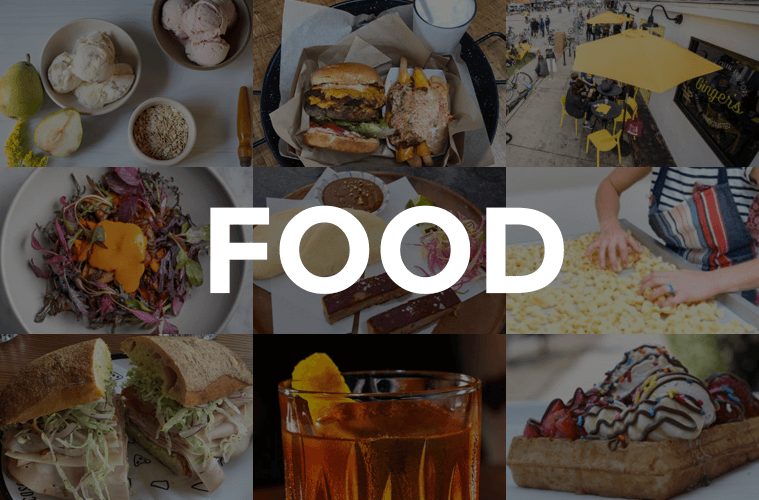Photo by Anne Fishbein
The Iranian community in Los Angeles is a massive entity, with miles of Farsi-language signs on nightclubs and supermarkets and accountancy firms, bookstores and boutiques, law firms and Mercedes repair shops. The Iranian music industry runs out of studios in the San Fernando Valley rather than in Tehran. Iranian restaurants, fairly rare in the rest of the country, operate in profusion here: tearooms, soda fountains, sandwich counters and kebab shop upon kebab shop. Hacienda Heights may often be called the Chinese Beverly Hills and View Park the African-American Beverly Hills — the Iranian Beverly Hills is, well, Beverly Hills.
But while saffron-pistachio ice cream may be slightly easier to find than chocolate chip in certain parts of town and the bean dish gheimeh commoner than decent bowls of chili, and while present-day Iran may be one of the most thoroughly Islamic nations on earth, the new Pasadena restaurant Heidar Baba may be the first halal Iranian restaurant in the Los Angeles area, a redoubt of extreme cleanliness, meat slaughtered according to Islamic law, and cooks who wear the hijab even in the heat of lunch rush; of strong tea served in glasses; of direct flavors and unmodulated herbal tartness.
Heidar Baba is a basic place, at first glance indistinguishable from the other student cafés on this stretch across from Pasadena City College, yet another inexpensive restaurant occupying that dining niche between Burger King and Denny’s. The menu is laid out on an illustrated signboard like the ones you see at falafel stands, and the spartan interior is enlivened only with a few hanging air plants, a couple of decorative hookahs and a fresh orchid on each table. As at Wendy’s, you dispense your own soda into paper cups. One end of the restaurant is taken up by a kind of café, usually unpopulated, selling espresso, boba tea and exotic, rosewater-intensive house-made ice cream.
The menu is pretty basic too — kebabs mostly, various combination plates of grilled beef and grilled lamb, grilled chicken and grilled lengths of koobideh, lightly seasoned ground beef or chicken, all flanked with charred tomatoes and grilled hot peppers, lined up like soldiers around lofty drifts of saffron-gilded rice that go on forever. (The red-tinted chicken kebabs are wonderful — halal chickens tend to be pretty good — but the mushy, overmarinated shish kebab is less so, if you’re keeping score.) Kebabs are what Iranians go out to restaurants for, apparently: The stews, the polos, the soups, the elaborate vegetable preparations are mostly eaten at home. As an appetizer, there is a plate of herbs and pickles with feta cheese and almonds. For dessert, maybe a piece of honeyed pastry and a glass of tea. The local idea of dinner is pretty cut and dried.
But there is the Iranian meat-and-grain dish haleem at Heidar Baba, not violently seasoned like Pakistani haleem but soothing, bland even, to the point that it seems more or less like a lamb shank plopped into a bowl of barley-flavored breakfast oatmeal. You can almost always get the restaurant’s signature version of ash, which is more or less the delicious Iranian version of minestrone, a thick bean soup colored green with herbs, fragrant with dill and garlic and a penetrating musky sourness that I suspect comes from sumac. The ash is a very good soup; and if you’re getting a kebab plate, you can almost always talk the person behind the counter into giving you a small bowl of it instead of the ordinary green salad that comes with most of the dinner combinations.
Someone at Heidar Baba is a whiz at koresht, the long-cooked, intricately seasoned stews at the heart of the Iranian kitchen. There tends to be only a stew or two available at any one time, but it’s the best food in the restaurant, fresher-tasting than most of the koresht in the Westside Iranian restaurants, more powerful, more direct. The gheimeh, a legume stew with dried limes cooked down to lusciousness like an Iranian cassoulet, is wonderful. But really, it’s all about the ghormeh sabzi, spinach simmered with beans and meat and handfuls of herbs until it collapses into a fragrant army-green goo. If you had ghormeh sabzi like this in your life, you might be tempted to whip out your prayer mat too.
Heidar Baba, 1511 E. Colorado Blvd., Pasadena, (626) 844-7970. Lunch and dinner, Mon.–Fri., 11 a.m.–9 p.m.; Sat. and Sun., 12 p.m.–10 p.m. AE, D, MC, V. No alcohol. Takeout. Lot parking. Dinner for two, food only, $14–$28.
Advertising disclosure: We may receive compensation for some of the links in our stories. Thank you for supporting LA Weekly and our advertisers.

